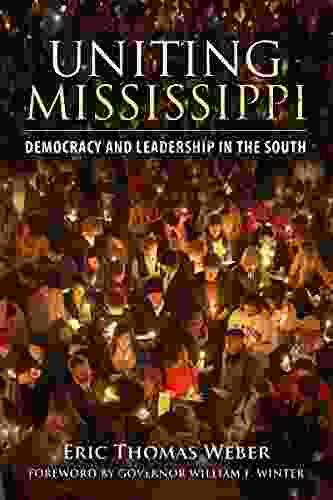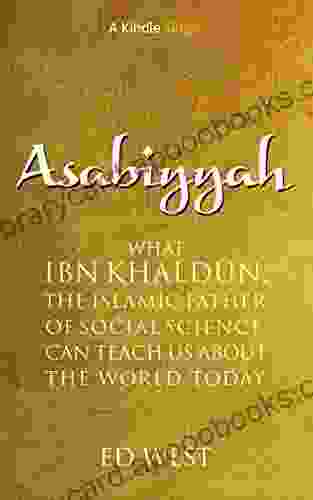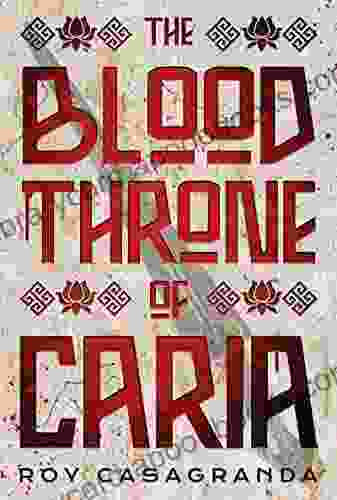Unveiling the Islamic Father of Social Science: Lessons from Ibn Khaldun's Timeless Work

In the annals of intellectual history, few figures stand as tall as Ibn Khaldun, the renowned 14th-century Islamic scholar and historian. Often hailed as the father of social science, Ibn Khaldun left an indelible mark on the fields of sociology, economics, politics, and history. His magnum opus, the Muqaddimah (Prolegomena) is a seminal work that offers a comprehensive analysis of human society and civilization. This article explores Ibn Khaldun's groundbreaking ideas and examines the enduring relevance of his teachings in the modern world.
Born in Tunis in 1332, Ibn Khaldun lived during a tumultuous period in Islamic history. As a young man, he witnessed the rise and fall of several dynasties, gaining firsthand experience of the complex interplay of political, economic, and social forces. Ibn Khaldun's life was marked by both triumph and adversity. He served as a high-ranking official in various courts, but his outspoken nature and critical intellect often drew the ire of his contemporaries.
Despite the challenges he faced, Ibn Khaldun remained dedicated to his scholarly pursuits. He traveled extensively throughout the Islamic world, observing different cultures and societies. His keen observations and insights formed the basis of his groundbreaking work, the Muqaddimah.
4.6 out of 5
| Language | : | English |
| Text-to-Speech | : | Enabled |
| Enhanced typesetting | : | Enabled |
| Word Wise | : | Enabled |
| Lending | : | Enabled |
| File size | : | 2946 KB |
| Screen Reader | : | Supported |
| Print length | : | 37 pages |
The Muqaddimah is a monumental work that encompasses a vast array of topics, including:
- The nature of human society
- The rise and fall of civilizations
- The dynamics of political power
- The role of economics in shaping society
- The influence of geography on human affairs
Ibn Khaldun's approach to social science was both empirical and philosophical. He argued that to truly understand society, it is necessary to examine both historical data and the underlying principles that govern human behavior. His work is notable for its use of quantitative methods, such as statistical analysis, to support his arguments.
Among Ibn Khaldun's most important ideas are the following:
- Asabiyyah (group solidarity): Ibn Khaldun believed that human society is held together by a sense of group solidarity, or asabiyyah. This solidarity is essential for the rise and maintenance of civilizations. However, as civilizations grow and become more complex, the bonds of asabiyyah tend to weaken, leading to decline.
- The cyclical nature of history: Ibn Khaldun argued that civilizations follow a cyclical pattern of rise, decline, and renewal. This cycle is driven by the interplay of political, economic, and social forces.
- The importance of geography: Ibn Khaldun recognized the profound influence of geography on human affairs. He argued that environmental factors, such as climate, terrain, and access to resources, play a significant role in shaping the development of civilizations.
- The need for a strong state: Ibn Khaldun believed that a strong and stable state is essential for the flourishing of civilization. The state provides security, maintains Free Download, and supports economic growth.
- The role of religion: While Ibn Khaldun was not a religious scholar, he acknowledged the importance of religion in shaping society and believed that it could play a positive role in social development.
Ibn Khaldun's work had a profound influence on both Islamic and Western thought. In the Islamic world, his ideas provided a framework for understanding the rise and fall of Muslim empires. In the West, his work was rediscovered in the 19th century and played a significant role in the development of modern social science.
Today, Ibn Khaldun's ideas continue to resonate with scholars and policymakers around the world. His insights into the dynamics of social change, the role of the state, and the importance of geography remain relevant in the 21st century.
Ibn Khaldun stands as a towering figure in the history of social science. His groundbreaking work, the Muqaddimah, offers a timeless and insightful analysis of human society and civilization. Through his keen observations, empirical research, and philosophical insights, Ibn Khaldun provided invaluable lessons that continue to shape our understanding of the world around us. As we navigate the complex challenges of the 21st century, his teachings remain a source of wisdom and inspiration.
4.6 out of 5
| Language | : | English |
| Text-to-Speech | : | Enabled |
| Enhanced typesetting | : | Enabled |
| Word Wise | : | Enabled |
| Lending | : | Enabled |
| File size | : | 2946 KB |
| Screen Reader | : | Supported |
| Print length | : | 37 pages |
Do you want to contribute by writing guest posts on this blog?
Please contact us and send us a resume of previous articles that you have written.
 Book
Book Novel
Novel Page
Page Chapter
Chapter Text
Text Story
Story Genre
Genre Reader
Reader Library
Library Paperback
Paperback E-book
E-book Magazine
Magazine Newspaper
Newspaper Paragraph
Paragraph Sentence
Sentence Bookmark
Bookmark Shelf
Shelf Glossary
Glossary Bibliography
Bibliography Foreword
Foreword Preface
Preface Synopsis
Synopsis Annotation
Annotation Footnote
Footnote Manuscript
Manuscript Scroll
Scroll Codex
Codex Tome
Tome Bestseller
Bestseller Classics
Classics Library card
Library card Narrative
Narrative Biography
Biography Autobiography
Autobiography Memoir
Memoir Reference
Reference Encyclopedia
Encyclopedia K G Reuss
K G Reuss Martin Bernal
Martin Bernal Yiannis Papadopoulos
Yiannis Papadopoulos Katie Lindler
Katie Lindler Virgil Ballard
Virgil Ballard Amy Barickman
Amy Barickman Lynn Cahoon
Lynn Cahoon Tom Mahalo
Tom Mahalo Amber Richards
Amber Richards Ana Castillo
Ana Castillo Victor Davis Hanson
Victor Davis Hanson Reed Hastings
Reed Hastings Ibragim Kharaev
Ibragim Kharaev Ayman Hassan
Ayman Hassan Amber Argyle
Amber Argyle Rosemary Aitken
Rosemary Aitken Janet Berliner
Janet Berliner Jack Goldstein
Jack Goldstein Jack Richards
Jack Richards Michelle Hawkins
Michelle Hawkins
Light bulbAdvertise smarter! Our strategic ad space ensures maximum exposure. Reserve your spot today!

 Theodore MitchellDiscover the Art of Rag Rug Making: A Beginner's Guide to Creating Cozy,...
Theodore MitchellDiscover the Art of Rag Rug Making: A Beginner's Guide to Creating Cozy,...
 Cortez ReedUniting Mississippi: Unveiling the Roots of Democracy and Leadership in the...
Cortez ReedUniting Mississippi: Unveiling the Roots of Democracy and Leadership in the... Truman CapoteFollow ·17.8k
Truman CapoteFollow ·17.8k Giovanni MitchellFollow ·10.2k
Giovanni MitchellFollow ·10.2k Foster HayesFollow ·16.3k
Foster HayesFollow ·16.3k Dakota PowellFollow ·2.3k
Dakota PowellFollow ·2.3k Richard SimmonsFollow ·17.8k
Richard SimmonsFollow ·17.8k Alec HayesFollow ·12.3k
Alec HayesFollow ·12.3k Leslie CarterFollow ·2k
Leslie CarterFollow ·2k Ethan MitchellFollow ·7.8k
Ethan MitchellFollow ·7.8k

 Roald Dahl
Roald DahlImmerse Yourself in a Mesmerizing Tapestry of Creativity:...
Prepare to be captivated by "Spectra," an...

 Clarence Brooks
Clarence BrooksUnleash Your Inner Taylor with Red Piano Vocal Guitar:...
Embrace the Red Era...

 Jeffrey Hayes
Jeffrey HayesUnlock Your Child's Academic Potential: A Comprehensive...
In today's rapidly changing...

 William Golding
William GoldingBrave Elizabeth: A Captivating Tale of Resilience and...
Immerse Yourself in a Riveting Historical...

 Curtis Stewart
Curtis StewartUnveiling the Heartfelt Melodies of Taylor Swift: A...
Step into the enchanting world of Taylor...
4.6 out of 5
| Language | : | English |
| Text-to-Speech | : | Enabled |
| Enhanced typesetting | : | Enabled |
| Word Wise | : | Enabled |
| Lending | : | Enabled |
| File size | : | 2946 KB |
| Screen Reader | : | Supported |
| Print length | : | 37 pages |










